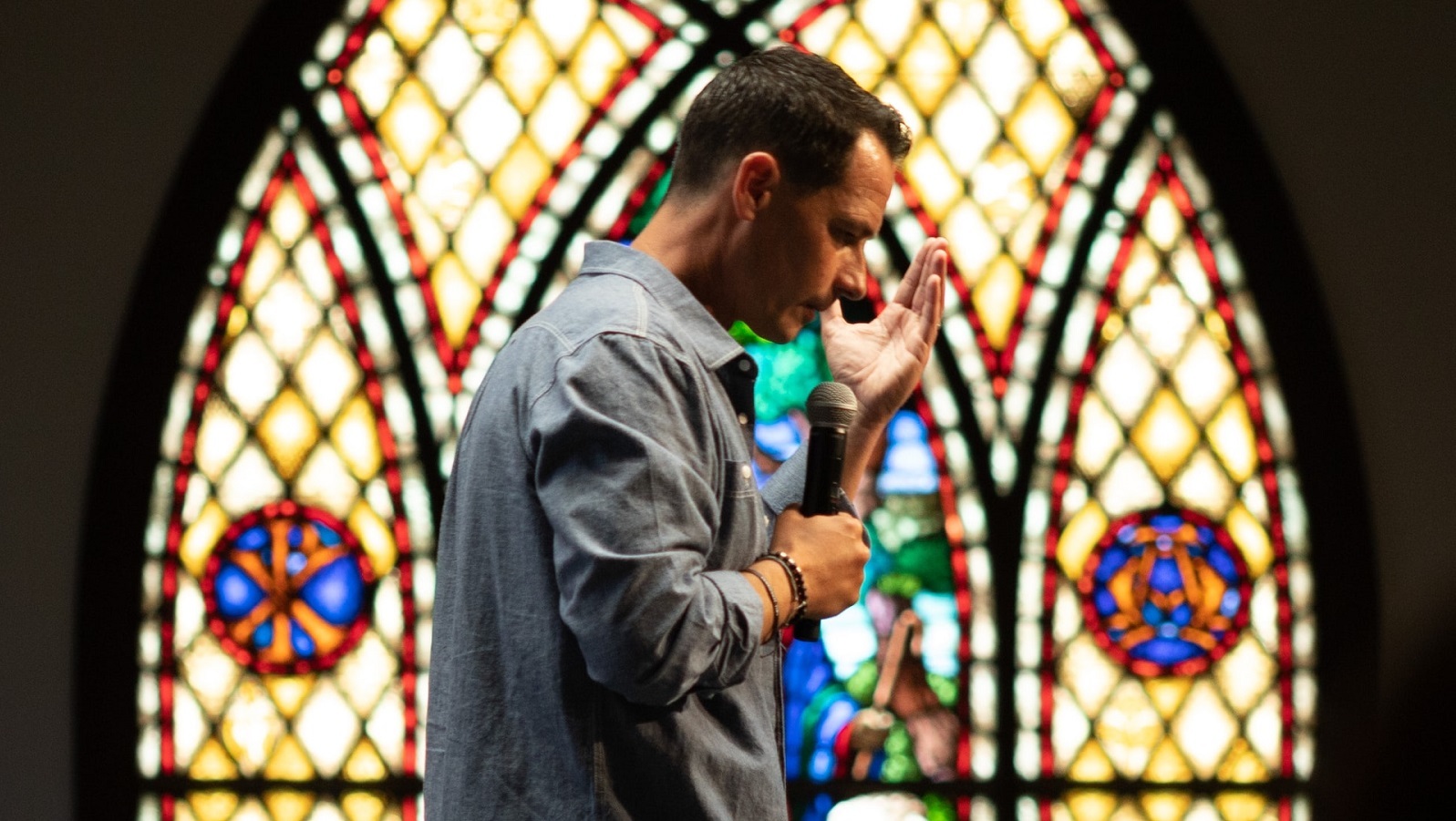A consumer is defined as “a person who purchases goods and services for personal use.” If you are wondering if consumerism has infiltrated the church in America, consider the following: the most popular criticism of the church service is, “I didn’t really get anything out of it today.” The most prevalent compliment is, “that was just what I needed.”
When you walk into just about any church in America this dynamic is subtle, but clear. There are paid staff who act as professional ministers. They are the ones responsible for the activities of the church. The vast majority of time, effort, and responsibility falls on these professional pastors. They design sermons, order songs, pray for congregants, give answers and offer advice.
The Sunday morning experience has become a show. We come and watch. We are not really asked to participate – we are asked to consume.
Our role is to merely hear and receive. We have no significant personal responsibility in the function and operation of the church. We are treated like consumers and so we act like them. Structure demands behavior. And the structure of the church is producing less disciples and more entrenched consumers.
We are so steeped in this paradigm that it is eclipsing the gospel. The good news of Jesus is buried and gasping for breath. The assessment of the problem is usually that the church has not held up its end of the bargain. Too much of our modern response is an attempt for us to justify and uphold the transaction. It is not the failings on the back end, but the entire paradigm of consumerism that is broken. The structure itself does not work. Yet we keep doubling down on it, certain that we can find the right pastor(s) and design the right program(s) to change peoples’ lives and legitimize the arrangement.
We need a new paradigm. The gospel is about unity in shared power, not the transactional hierarchy we have made it out to be. We need to develop new structures in which congregants are active participants rather than passive consumers – structures that activate and empower people rather than assume their inadequacy and the pastor’s supremacy.
Much of the consumerism mindset is epitomized in what is often called the “seeker-friendly” approach. The idea is that in order to bring people into the church, add numbers to the flock, expand the kingdom, and reach souls needing salvation, the best approach is to make the setting attractive to them. What is more attractive to the searching consumer than solution and certainty coupled with no responsibility and no expectation? This kind of approach has impacted the messages we preach (both verbal and nonverbal), our impact on the community (not really necessary if the end game is “personal use”), and even the way we think about God.
The seeker-friendly approach smells a lot like a worldly application of supply and demand. Meet the people at their felt need. But for many of us, our felt needs are superficial and circumstantial. We want to win the lottery and be happy all the time, neither of which are promoted in Scripture. According to supply and demand, the way to attract people is to give (or at least promise) better circumstances and better emotions. We give the “seekers” what they are looking for, which can be problematic when what people are searching for is not what they truly need - or, in the long run, not what they truly want.
Perhaps there is a greater question we often ignore when considering consumerism in the American Church: just who are the “seekers” anyway? The assumption is that by “seeker,” we mean people who do not know God. But they know coffee and modern music. So, the modern church says, let’s give them those things. I wonder, though, if what we are really attracting are established Christians who love coffee and modern music. Most of our churches are reshuffling believers rather than attracting new ones. If you were primarily interested in coffee or music, why in the world would you go to church to find it? If you were interested in (“seeking”) faith, why would these things help rather than distract? Perhaps this “seeker-friendly” language is really a subtle and subconscious excuse for career Christians to make their cathedrals more fun for themselves. We seem to be caught in no-man’s-land, not sure if we are recruiting or communing. And in the confusion, we end up doing neither. Instead, we fall into what is easiest, running parallel to the worldly attempts at superficial comfort.
Either way, what we get is either people within the church looking to make church more comfortable or people outside the church looking for something spiritual through a worldly paradigm. In the end, it feeds a structure that looks a lot more like Babylon than the Kingdom of God. It creates idols out of celebrity pastors. It produces perpetually lost, apathetic and dependent congregants. It doesn’t meet the true needs and desires of people, nor does it look much like the Kingdom of God in which it claims to abide.
The underlying suggestion, although we do not print this on our brochures, is that we might be able to pull a cosmic bait and switch. Bring them in for the food court and dynamic speaking, then have their lives transformed for the gospel. Traditional church practitioners will say this has been effective and that it is happening every day.
I would argue that the bait and switch is not as effective as we like to pretend. We never quite end up making the full switch. Instead, we just end up with more sophisticated bait. We tell others and ourselves that we have made the switch. All too often, we have not. We just end up using spiritual language to justify superficial pursuits.
We have developed a structure misaligned with our stated mission. We are too often baptizing people into more sophisticated expectations, a sort of “leveling up,” rather than into the Kingdom of God. This is how we end up with Christian nationalism and the prosperity gospel. We were converted into a broken structure, which we have carried into the rest of our lives. We worry and wrestle at the ineffectiveness, returning over and over to the same ineffective structure. It promised results. It sold us on happiness, solution, and freedom from responsibility. Just like the promises of television ads, the key is not to give us the solution but to keep us coming back. To create dependents. Maybe even addicts. I don’t think church leaders do this on purpose, maliciously. In fact, I think they are victims of it themselves.
So, if this is the reality (and it must at least partially be so), what are we to do in response?
Jesus sets up the Kingdom of Heaven over and against the power dynamics of the modern world (both his and ours). He represents an alternative to the transactional posturing so prevalent in advertising campaigns, as well as our “seeker-friendly”, country club churches. His is a message, not of consumerism, but of participation, contribution, and collaboration. We need to be empowered and activated – which is something only Jesus can do. A person (even a pastor) cannot give you power. The term “empower” does not mean that. It means one person with power making way for another. The modern church has become dependent on the power of too few. We need to awaken, broadly and holistically. We need congregants who are activated and do more than show up and inhale, living at best half of the Christian life.
We’ve lost what it means to be a disciple of Christ for what it means to pledge allegiance to our particular church expression. We need to get back to our first love. We need new expressions of the church that stretch beyond a Sunday morning event and into the wild depths of our lives - work, home and play. We need to move beyond stagnant consumerism and into missional inter-dependency. Frankly, we need to expect more from both our pastors and ourselves. That journey starts with confronting the inadequacies of our current structures.









